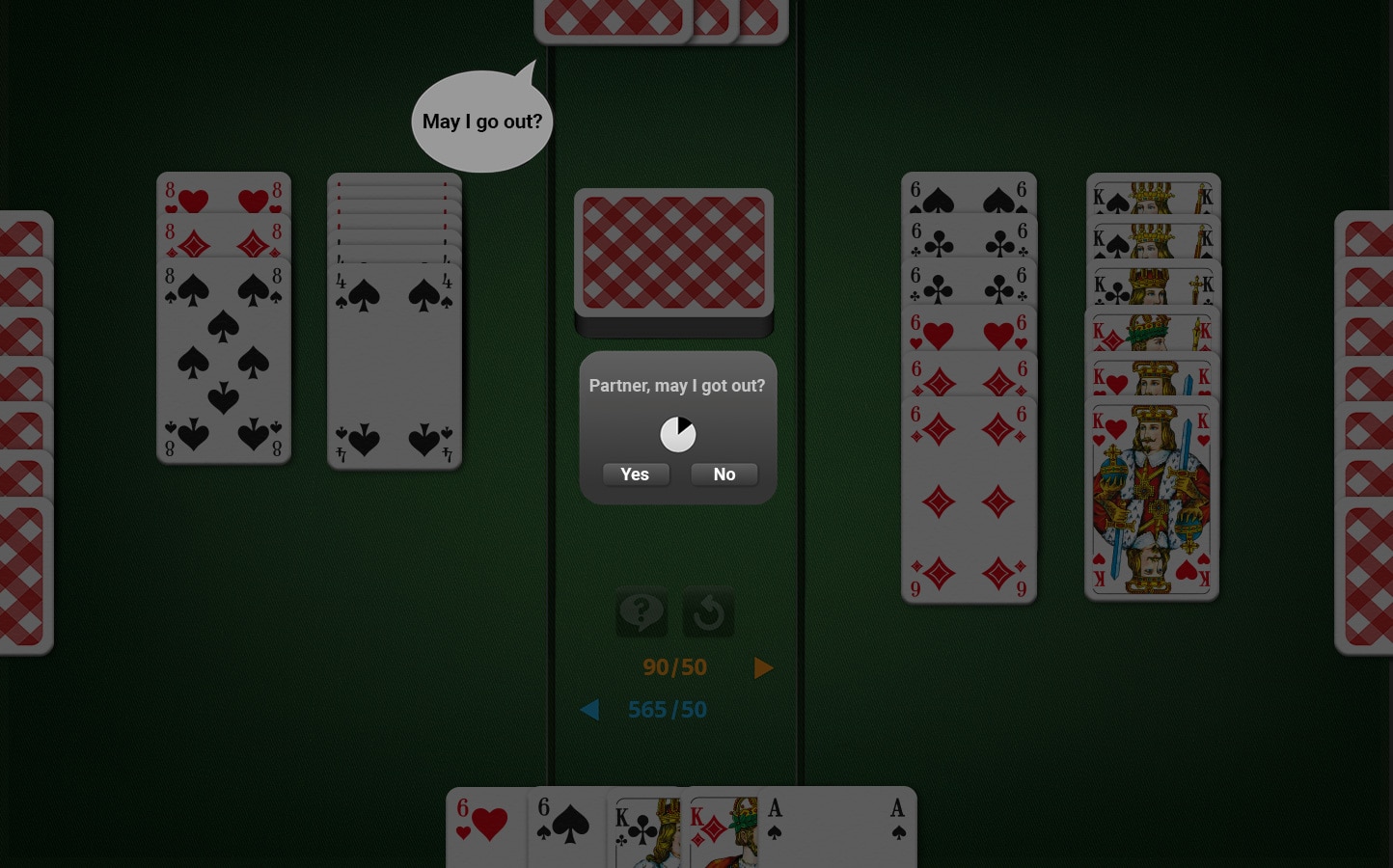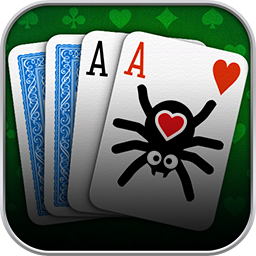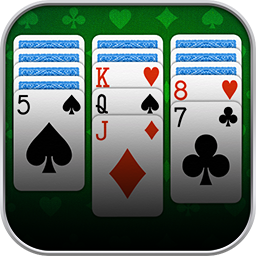In four-player Canasta, two players will form a team each. If the game is going grand for you, but your teammate can barely play any cards, you should not suddenly end the round. The problem is that you do not know what your teammate’s hand looks like. To prevent unpleasant surprises, you can ask your teammate for permission to go out in Canasta.
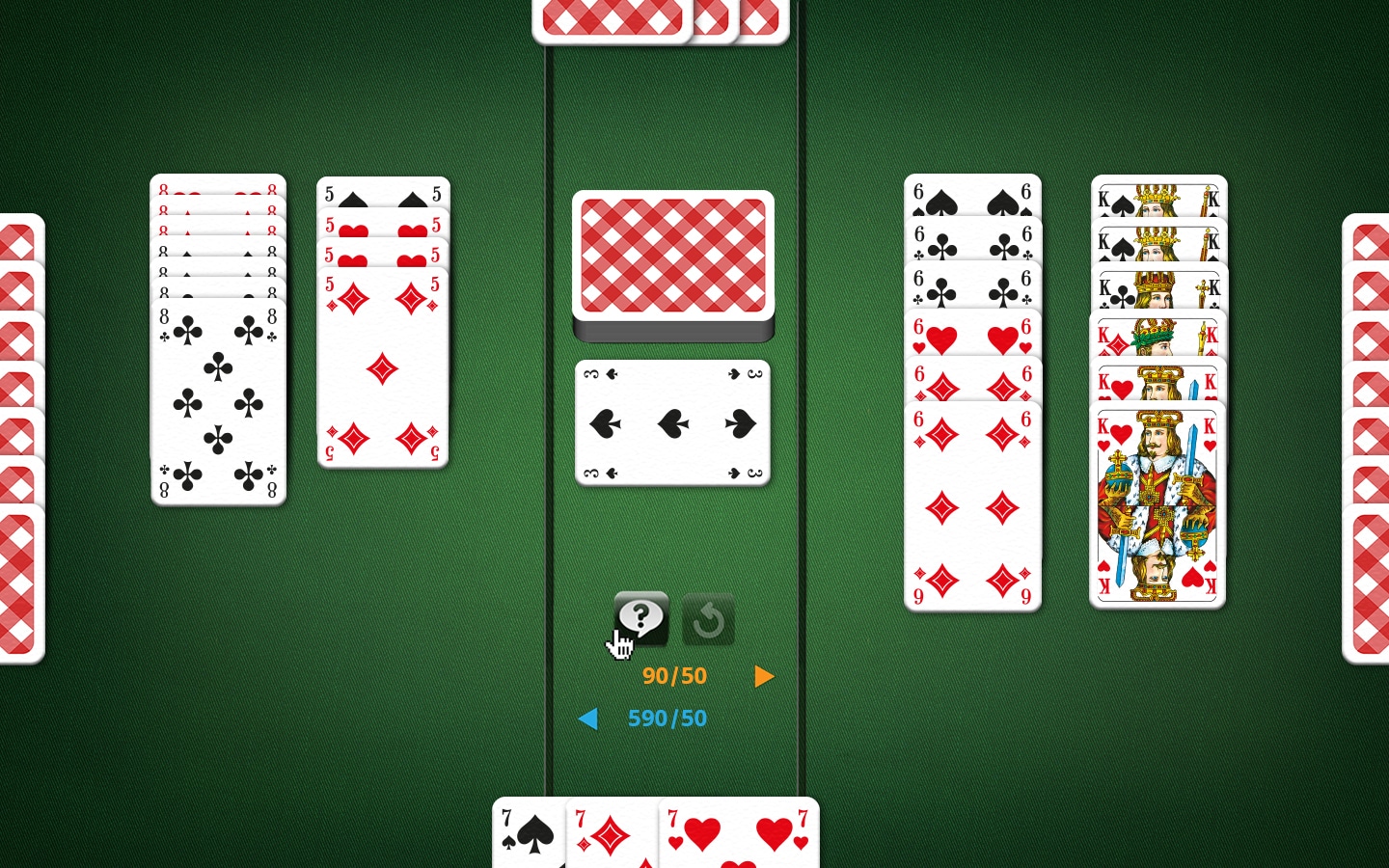
Many Cards
When you can see that your partner’s hand is well-stocked, you should not just go out, even if it would be concealed. If your partner holds especially high-scoring cards – Aces and wild cards, for example – the minus points for your team might neutralize or even surpass the bonus for going out (concealed). Will you still be able to score higher than the opponents? Just ask if you may go out. Your partner decides, and you MUST adhere to their answer. This way, you avoid high minus points. And if they are only holding lower-value cards, your partner will surely let you go out.
Few Cards
Even when your partner’s hand looks sparse, asking might be worthwhile. When you ask, it is clear that you are able to end the game. This way, your partner knows that they should play any melds they might have retained in their next turn to maximize your points. And you can still end the round in your next turn.
Signal to all Players
The question for permission does not always pay off. When both teams are close in scores and your partner is holding less than four cards, you should be able to finish the round without bigger trouble. Going out gives you a little boost, and your partner is not very likely to have kept any wild cards with so few hand cards.
When you are asking for permission, everyone at the table can hear it, of course, including your opponents. And between you and your partner, it is always an opponent’s turn. If you are denied going out, the opponents know that they need to score as many points as possible and play accordingly. This would not happen without asking.
Teamplay
That is why you, too, should weigh your words when your teammate asks for permission to go out. Would your hand cards make a significant difference in the evaluation? If you would like to play some more but could only meld a few points or rather only hold a few minus points in hand, you should let your partner go out. Otherwise, your opponents have time to react, which could cost you plenty of points.
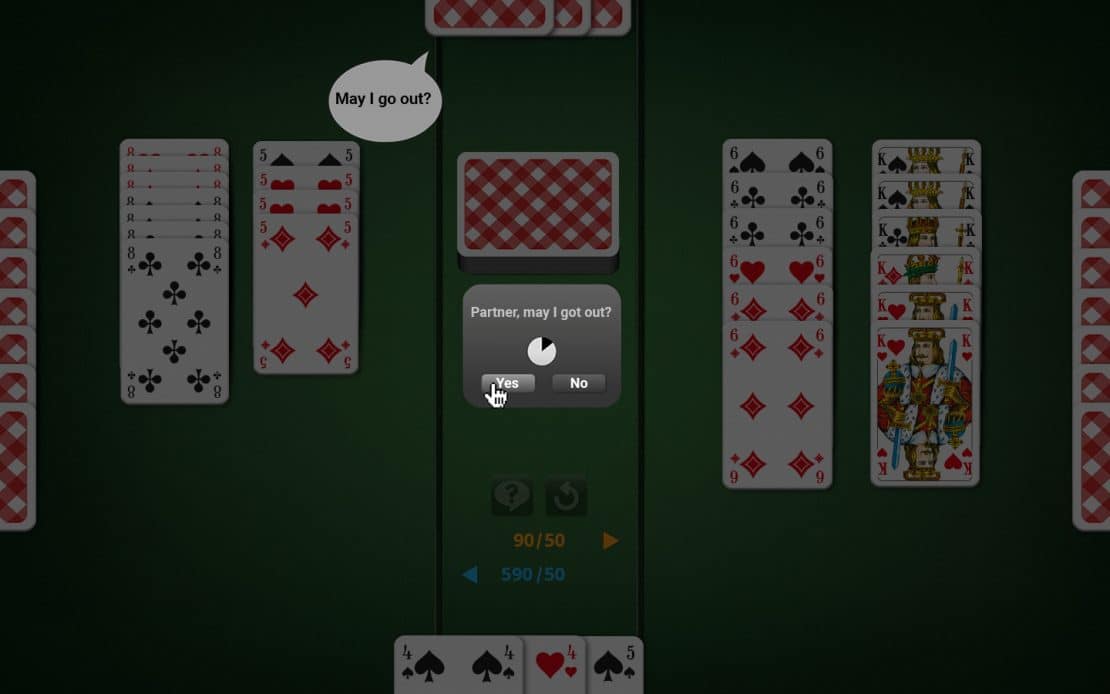
The bottom line is that most people prefer actually cooperating in a team game. Thus, it is fair to say that asking for permission is certainly considered good form. In the end, you have to decide for yourself if your potential score is worth omitting that element of teamplay.
Hurl yourself right into the next round, or take a look around the Canasta School, where you find loads of Canasta info. If you want to learn more in terms of tactics, you can head right for the list of Canasta Lessons.
